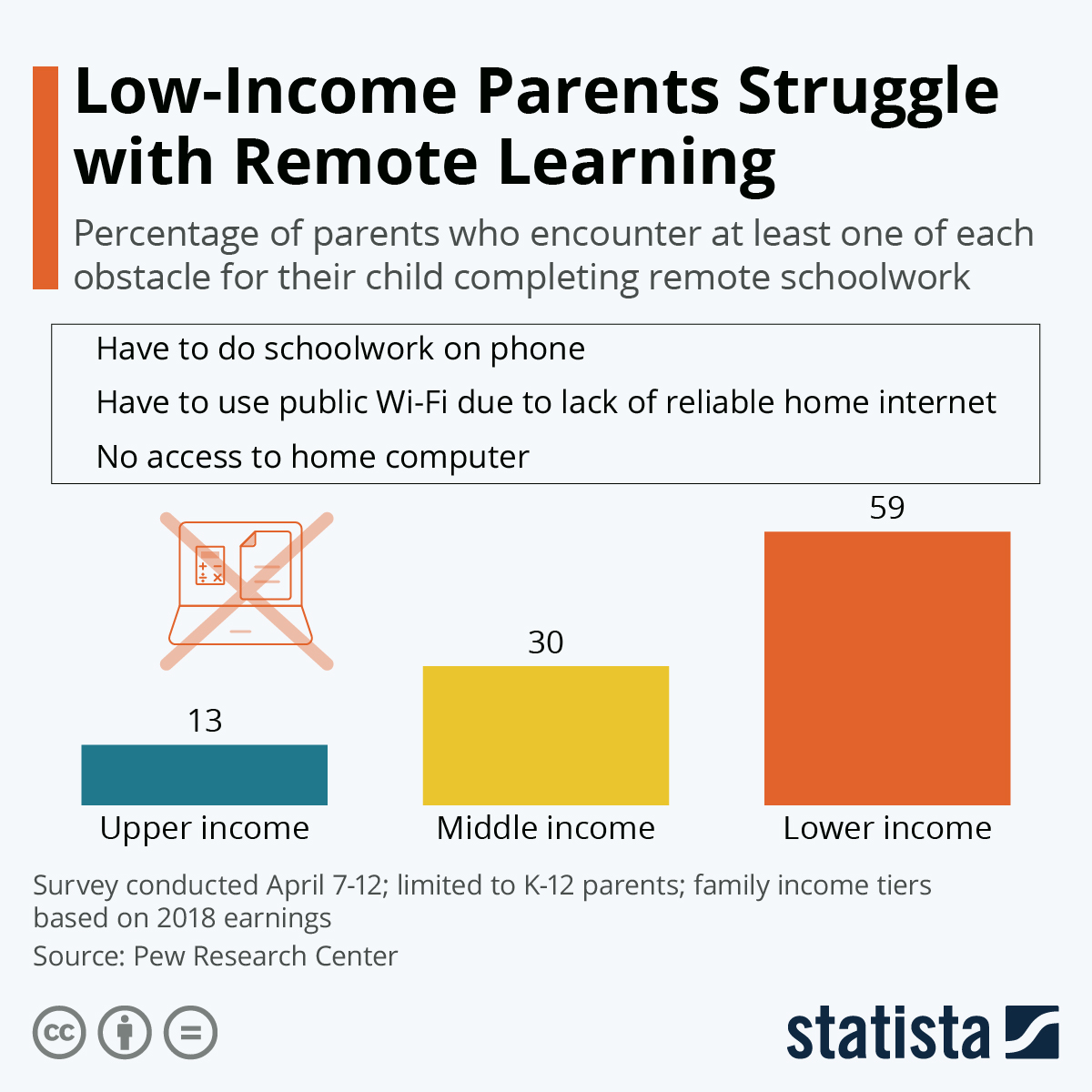New data shows that the majority of low-income parents are finding it difficult for their child to complete schoolwork remotely due to lack of stable internet and computer hardware.
According to the Pew Research Center, 59 percent of parents classified as low-income said their child either had to do schoolwork on their phone, use public Wi-Fi due to slow home internet or didn’t have access to a home computer. That compares to 30 percent of parents rated as middle-income and just 13 percent of those classified as high-income who said the same.
Difficulties with digital remote learning are again raising the issue of internet as a public utility in the U.S. Internet has become a necessity for the vast majority of workers and students in the country, and the longstanding problems of accessibility and affordability continue to stand as an unfair barrier for low-income households. Still, according to a 2019 Pew survey, just 28 percent of U.S. adults think the federal government has a responsibility to provide access to high-speed internet for all Americans. Widespread remote work and school coronavirus plans could act as a catalyst for bringing the affordable internet accessibility conversation to the forefront of public debate.





















